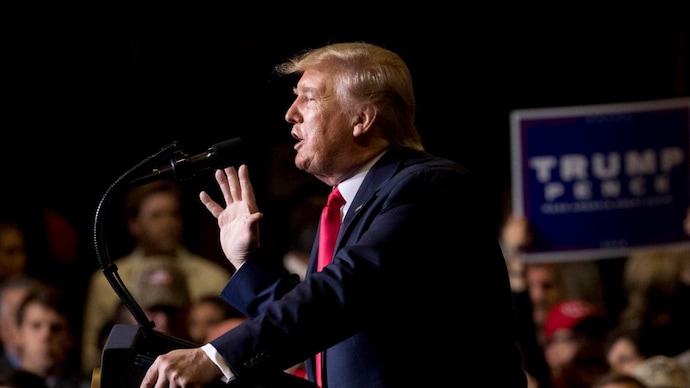
National party organizations can dictate the day-to-day decisions of political parties, influencing everything from policy formation to candidate selection and campaign strategies. These organizations play a significant role in shaping the political landscape of a country.
The Role of Party Organizations
National party organizations can dictate the day-to-day decisions of political parties, influencing everything from policy formation to candidate selection and campaign strategies. These organizations play a significant role in shaping the political landscape of a country. The power of party organizations extends beyond traditional political structures and can affect the choices made by elected officials, party members, and even individual voters.
Influencing Policy Formation
National party organizations can dictate the day-to-day decisions of political parties, influencing everything from policy formation to candidate selection and campaign strategies. These organizations play a significant role in shaping the political landscape of a country. Party platforms and policy priorities are often determined by the leadership of these organizations, impacting the direction of government and public policy. As such, party organizations have the power to shape the national agenda and drive legislative initiatives on both a local and national level.
Candidate Selection and Campaign Strategies
National party organizations can dictate the day-to-day decisions of political parties, influencing everything from policy formation to candidate selection and campaign strategies. These organizations play a significant role in shaping the political landscape of a country. Party organizations often play a key role in recruiting and endorsing candidates for elected office, providing them with vital resources and strategic support throughout their campaigns. As a result, party organizations have the ability to influence the composition of government bodies and the political direction of the country through their candidate selection and campaign strategies.
Shaping the Political Landscape
National party organizations can dictate the day-to-day decisions of political parties, influencing everything from policy formation to candidate selection and campaign strategies. These organizations play a significant role in shaping the political landscape of a country. By exerting influence over policy formation, candidate selection, and campaign strategies, party organizations can shape the political environment in which elected officials operate. This influence can have far-reaching consequences for the governance of a country, as well as the lives of its citizens.
The Power of Individual Voters
National party organizations can dictate the day-to-day decisions of political parties, influencing everything from policy formation to candidate selection and campaign strategies. These organizations play a significant role in shaping the political landscape of a country. The influence of party organizations extends to individual voters, who are often swayed by the endorsements and platforms of their chosen political party. As such, the decisions made by party organizations can impact the voting behavior of the electorate and ultimately influence the outcome of elections.
Conclusion
National party organizations wield significant power in shaping the day-to-day decisions of political parties, influencing policy formation, candidate selection, and campaign strategies. Their influence extends beyond traditional political structures and can impact the choices made by elected officials, party members, and individual voters. As such, it is essential to recognize the power of party organizations in shaping the political landscape of a country and understand their role in driving governance and public policy.
FAQs
What are national party organizations?
National party organizations are the governing bodies of political parties at the national level. They are responsible for setting party platforms, endorsing candidates, and coordinating campaign strategies.
How do national party organizations influence policy formation?
National party organizations influence policy formation by shaping party platforms and priorities, which in turn drive legislative initiatives at both the local and national levels of government.
Do national party organizations impact individual voters?
Yes, national party organizations can influence individual voters through their endorsements, platforms, and candidate selection, which can sway the voting behavior of the electorate.
national party organizations can dictate the day-to-day decisions of
Party organizations play a crucial role in shaping daily political decisions. This power stems from their ability to mobilize and coordinate their members and resources to influence the political process. Party organizations are the backbone of political parties and their influence extends to all levels of government. From local to national politics, party organizations are essential in shaping the daily political decisions that affect our society.
At the local level, party organizations play a pivotal role in selecting and supporting candidates for political office. They recruit and groom potential candidates, help them navigate the political landscape, and provide them with the necessary resources to run and win elections. As a result, party organizations have a significant say in who gets elected to local government positions and, ultimately, in the decisions made by those officials.
Party organizations also have the power to shape daily political decisions at the state and national levels. They play a crucial role in setting the party’s agenda, crafting policy platforms, and influencing legislative priorities. Additionally, party organizations are instrumental in mobilizing grassroots support for their party’s initiatives and rallying their members to push for specific policies or legislation.
Moreover, party organizations influence daily political decisions through their role in fundraising and campaign strategies. They provide financial support to candidates and help coordinate campaign efforts, including advertising, voter outreach, and get-out-the-vote operations. Their ability to allocate resources and mobilize support can shape the outcome of elections and, consequently, the daily decisions made by elected officials.
Furthermore, party organizations play a key role in holding elected officials accountable to their party’s values and priorities. They provide a platform for party members to voice their concerns and influence the decision-making process within the party. This internal pressure can influence the behavior of elected officials and steer their daily political decisions towards the party’s objectives.
In addition, party organizations shape daily political decisions through their role in influencing public opinion. They use their networks and resources to promote their party’s message, shape public discourse, and sway public opinion in favor of their policy positions. By framing the issues and controlling the narrative, party organizations can shape the political environment and influence the daily decisions made by policymakers and the public.
In conclusion, the power of party organizations in shaping daily political decisions cannot be understated. Their influence extends from local to national politics and encompasses all aspects of the political process, from candidate recruitment and support to agenda setting and policy implementation. As such, party organizations are essential players in shaping the direction of our society and the decisions made by our elected officials. national party organizations can dictate the day-to-day decisions of







:max_bytes(150000):strip_icc()/GettyImages-1179580531-4340ea9cb05f4158b56b2e9dd3b6f8ea.jpg)